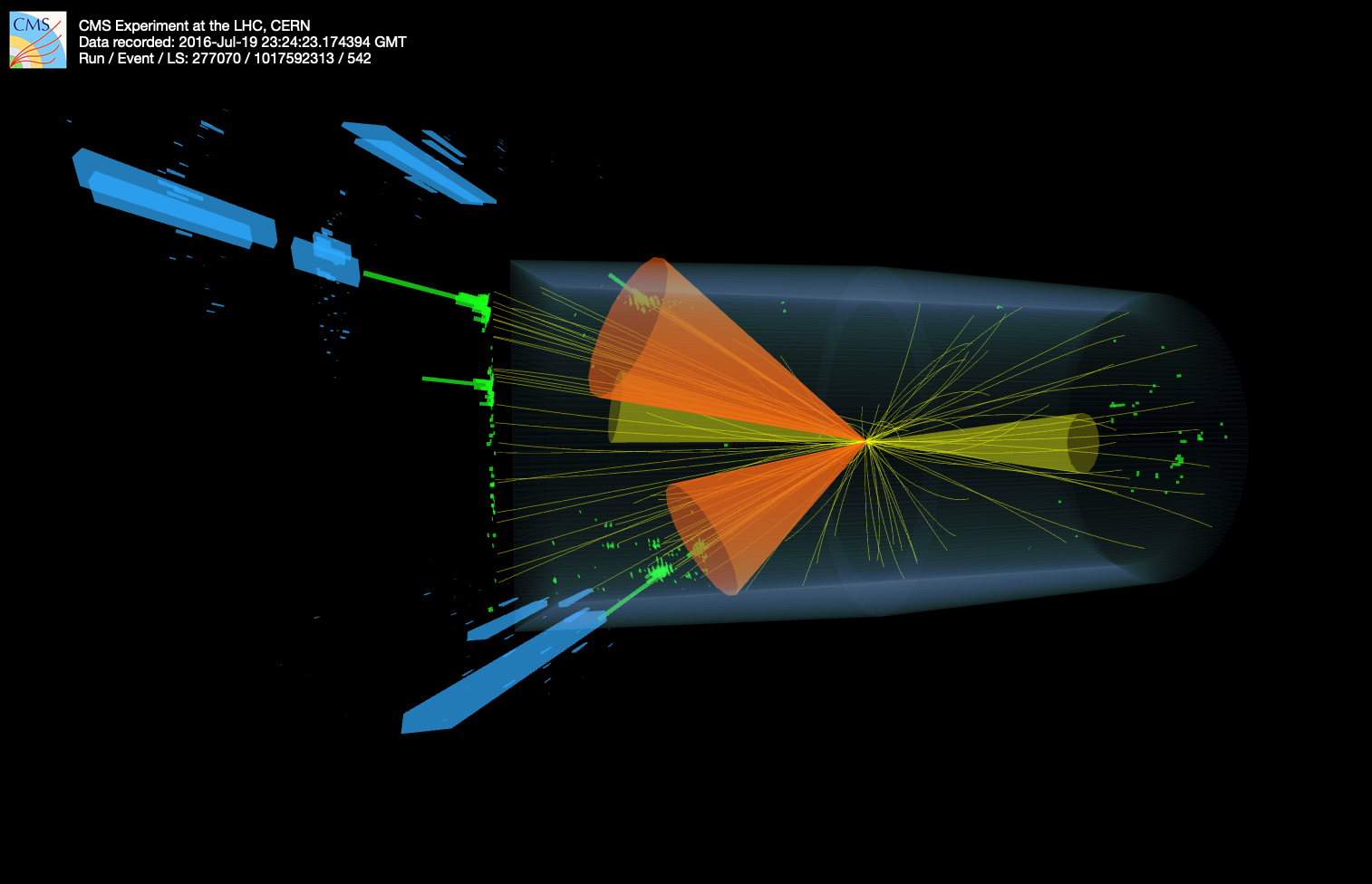What better first post for my blog than to share that my doctoral dissertation, Understanding the High Energy Higgs Sector with the CMS Experiment and Artificial Intelligence, was approved last month! In it, I write about my PhD work on searches for pairs of Higgs bosons produced at the CERN Large Hadron Collider (LHC) with the CMS experiment, and several new machine learning (ML), generative AI, and equivariant / geometric deep learning techniques for enabling such searches with fast simulation, improved classification, and anomaly detection algorithms.
Amazingly, by searching for Higgs boson pairs now, we are able to catch a glimpse of what the universe was like 14 billion years ago, just 1 trillionth of a second after the Big Bang! However, it is extremely challenging to both create and then identify such pairs: out of all the collisions observed by CMS, roughly one in 1 trillion are expected to produce Higgs pairs.
This is where AI and ML prove critical in filtering out the trillions of irrelevant collisions to find the handful of events we care about, such as the one shown below. In my dissertation, I show that ML can have a revolutionary impact in nearly all aspects of such searches, as well as, particle physics in general, and even how, vice versa, physics can lead to innovations in ML.
 One of the potentially one-in-a-trillion LHC collisions that produced a pair of Higgs bosons (large orange cones), which I was able to find in my PhD.
One of the potentially one-in-a-trillion LHC collisions that produced a pair of Higgs bosons (large orange cones), which I was able to find in my PhD.
For those interested, my dissertation is available both as a website [1] and PDF. A hopefully accessible overview for the general audience is given in the Introduction. During the course of writing, I had a lot of fun (re-)learning the theory and history of particle physics, the LHC and CMS experiments, and the ML and statistical methods we commonly use. I write about these topics as background material in Parts I - III; some of these notes are also available as standalone resources, which I hope to make posts about shortly!
Finally, in writing my dissertation - and particularly in studying the theoretical breakthroughs of the last century and the global effort that went into constructing the beautiful LHC and CMS experiments - I was reminded of what a rare gift it has been to be able to dedicate these five years of my PhD to learning about our early universe and, hopefully, contributing something to our understanding of it. I am extremely grateful to my family, friends, and mentors - not least, my advisor, Javier! - for allowing me this experience. Going forward, I hope to use this blog to share some of what I learnt in the process.
Footnotes
- I plan to post soon about the interesting experience of trying to convert my LaTeX thesis into an HTML website.